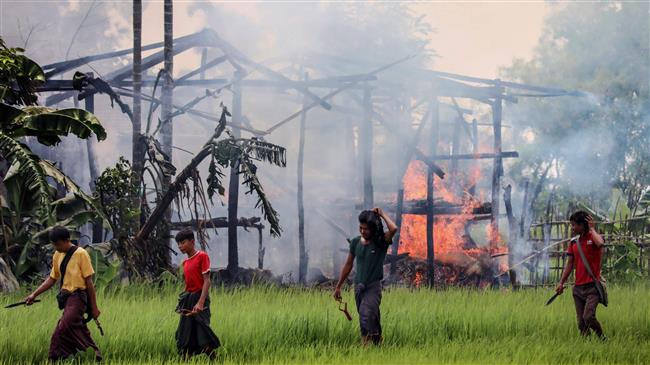
RNA - Relief and Refugee Repatriation Commissioner Mohammad Abul Kalam said on Monday that the meeting would take place Tuesday on the "zero line" near a place called Gundum.
"It is about taking them back to Myanmar," the official said, adding, "They are on the zero line and actually on the Myanmar side."
He noted there was no timeline for repatriations, that anyone going back must do so voluntarily and that Myanmar must provide a safe environment for their return.
"We cannot send them forcibly," Kalam said.
However, several officials in neighboring Myanmar said they were not aware of plans for a meeting.
Caroline Gluck, senior Public Information Officer for the United Nations refugee agency, earlier said the UNHCR was concerned the Rohingya may be forcibly returned to Myanmar without due consideration for their safety.
"We are concerned about the reports of pressures directed at this group of people at the border," Gluck said.
"People who fled violence and discrimination in Myanmar should not be forced to return against their will,” she added.
Elsewhere in her remarks, Gluck said the UNHCR was concerned that conditions in Rakhine state were not yet safe for voluntary returns, adding, "We urge both governments to ensure that any return is based on informed consent and takes place in safety and dignity."
The developments come as more than 6,500 Rohingya Muslims are trapped on a strip of unclaimed land between the two countries.
Bangladesh security forces have been instructed not to let these Rohingya cross the border.
The no-man's land used to be an area of paddy fields, but is now dotted with the tarpaulin and bamboo shacks of displaced Rohingya.
A leader of the Rohingya group in the buffer zone, Dil Mohammed, said, "Our no-man's land camp demands are that there must be a safe return, we need security and all basic rights, including citizenship."
Bangladesh and Myanmar signed an agreement late last year to repatriate about 700,000 Rohingya Muslim refugees who have crossed the border since August to escape a brutal military crackdown.
According to Press TV, the repatriation was set to start last month, but was delayed by a lack of preparation, as well as protests staged by Rohingya refugees against the plan to send them back to Myanmar while conditions were not safe for their return.
Myanmar’s government troops have been committing killings, making arbitrary arrests, and carrying out arson attacks in Muslim villages in Rakhine state since late 2016.
The Rohingya have lived in Myanmar for generations but are denied citizenship and are branded illegal immigrants from Bangladesh, which likewise denies them citizenship.
The UN has described the 1.1-million-strong Muslim community as the most persecuted minority in the world.
847/940